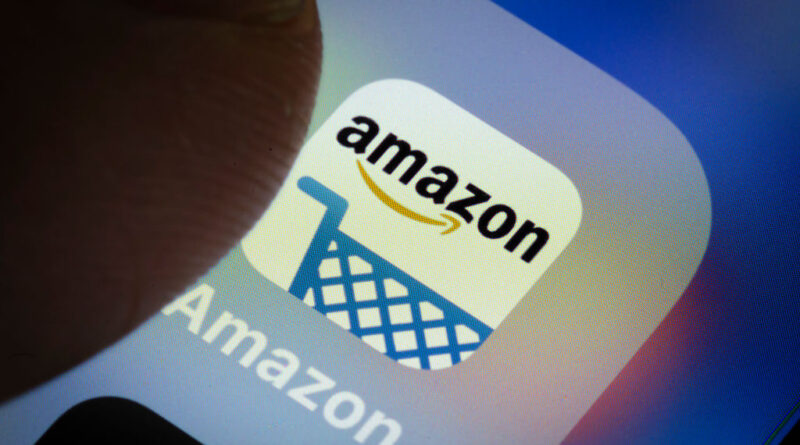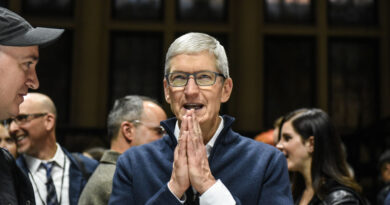Apple and Amazon face UK class action damages suit over price collusion claim
Apple and Amazon are facing a class-action style damages lawsuit in the U.K. alleging they abused their market power by colluding to increase the price of Apple products.
The suit, which has been filed in front of the Competition Appeals Tribunal today, is seeking compensation of at least £500 million (~$645 million) on behalf of millions of U.K. consumers who bought Apple or (Apple-owned) Beats products on Amazon’s marketplace since October 2018.
It alleges Amazon and Apple struck a secret deal in 2018 that unlawfully increased the price of Apple products sold on Amazon’s ecommerce marketplace.
The litigants allege the deal led to the ecommerce giant restricting sales of popular Apple products by independent merchants on its marketplace in exchange for preferential wholesale prices on all Apple and Beats kit — inflating prices for U.K. consumers buying Apple and Beats products on Amazon.
“The claim alleges that, by January 2019, almost all independent merchants of Apple and Beats products disappeared from the Amazon marketplace as a result of Apple and Amazon’s collusion,” they wrote in a press release. “This led to a decrease in the discounts provided to customers by the limited number of independent merchants remaining, and a significant increase in the sales of Apple and Beats products at undiscounted prices.”
The proposed class representative for the suit is Christine Riefa, a professor of law at the University of Reading whose academic work focuses on consumer protection law and policy.
Commenting on the suit in a statement, she argues the pair’s market power enabled them to restrict consumer choice and drive up prices:
Millions of consumers in the UK enjoy the services and products of Apple and Amazon. They do not suspect that those companies collude to make them pay more for their electronics and reduce their choice. I believe that big businesses like Apple and Amazon should behave fairly and compete on merits, not by using underhand tactics.
Each company has an effective stranglehold over its market, and they are misusing that advantage to shut out competition from independent merchants — unlawfully lining their wallets at the expense of consumers. It’s a betrayal of their customers’ loyalty.
At a time when families are under huge financial pressure from high inflation, mortgage and energy costs, it is more important than ever for consumers to be treated fairly. I decided to bring the claim because consumers individually would never have been able to and the two Tech giants would have continued to line their pockets with their unlawful behaviours going unchecked.
The law firm supporting Riefa to bring the representative action is Hausfeld & Co LLP. In another supporting statement, Wessen Jazrawi, partner at Hausfeld, added:
Apple and Amazon have worked together to exclude competitors on the Amazon platform and to reduce the availability of discounted products, at their customers’ expense. We look forward to working with Christine Riefa to return money to those who have lost out and to making these companies accountable for their unlawful conduct.
The claim is being brought on an opt-out basis — meaning all U.K. class members are included by default (and would be in line for compensation if the litigations prevails) unless they decide to opt-out. Affected consumers do not have to pay costs or fees to participate in the legal action, which is being funded by a commercial litigation funder whose name is not being disclosed. (But Law360 UK is reporting it’s the U.K.-based litigation funder, Asertis.)
U.K. consumers who believe they are eligible to be a member of the claimant class can find more information via the claim website: www.ukappleamazonclaim.co.uk.
Apple and Amazon were contacted for a response to the legal action.
An Amazon spokesperson sent us this statement:
This claim is without merit, and we’re confident that this will become clear throughout the process. As a result of our agreement with Apple, customers can find the latest Apple and Beats products on our store, and they benefit from an expanded range with better deals and faster shipping.
Apple declined to provide a public statement — saying it has not yet seen the lawsuit. But the company did offer some background remarks in defense of its reseller agreements with Amazon following legal challenges in other European markets. It argues its main objective for the agreements was to fight counterfeit and safety issues on the ecommerce marketplace and ensure a high quality experience for its customers.
It suggests counterfeiting was a particular problem on Amazon prior to the 2018 agreements, claiming to have had to dedicate significant time and resource trying to combat fakes — including sending hundreds of thousands of take-down notices to Amazon. Per Apple, the problem persisted until the 2018 agreements — after which it claims there was a significant reduction in the sale of counterfeit Apple kit on Amazon’s marketplaces and an improved experience for its customers.
The U.K. litigation follows antitrust enforcements against the two tech giants in Italy and and Spain that led to fines totalling almost $440 million being issued in recent years.
The two countries’ national competition regulators found the pair had colluded to place unlawful restrictions on resellers of Apple kit on Amazon’s local marketplaces. Amazon and Apple dispute the findings and filed appeals.
An appeal against the Italian decision was successful on procedural grounds in June last year but the litigants in the U.K. suit assert there was no criticism of the decision’s factual or economic findings, adding that they are drawing on information and economic analysis contained in the Italian regulator’s decision to support their claim.
Over in the U.S. the two tech giants are also facing a similar class action alleging price collusion. And just last month a federal judge denied a motion by the companies seeking to dismiss the consumer antitrust lawsuit — ruling it could proceed.
In separate news earlier this week, Apple was also targeted in the U.K. with another (unrelated) class action damages claim. In that case the litigants are seeking around $1BN in compensation on behalf of U.K. developers who they allege have been subject to anti-competitive behavior by the iPhone maker in relation to its App Store fees.
This report was updated with Apple’s response





